Olivier U Bahizi
Posts tagged with finding aids
Showing 1 - 9 of 9 items
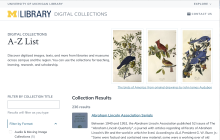
Olivier Bahizi, recipient of our summer 2025 Fellowship in Library User Experience, shares insights from his study of challenges users face when navigating the U-M Library's archival and digital collections across several platforms. Key themes include difficulties in discovery and access, limitations due to metadata, and lack of awareness and information literacy about archival materials.
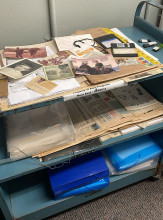
A second batch of materials for the Marcelo Mirisola Papers archive has arrived at the University of Michigan Library.
It is with pride and excitement that we announce the acquisition of the Marcelo Mirisola Papers – an archival collection that comprises 5 boxes of materials produced in the Portuguese language by renowned Contemporary Brazilian author Marcelo Mirisola during the first 15 years of his writing career (1989–2004).
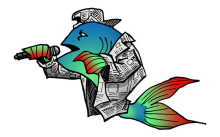
In our inaugural Digital Collections Connection meeting on March 7, 2024, we shared a couple of slides that showcase the history of the technical infrastructure for digital collections at U-M Library. During the session, we heard that this overview of our systems was helpful to content partners in understanding current functionality and limitations. We wanted to take this opportunity to share the diagrams more widely and to provide more context and historical information about the origins of, and recent changes to, our digital collections platform.
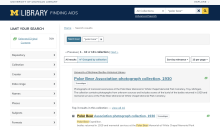
After the successful launch of our ArcLight finding aids application on April 19, 2023 - and the deprecating of our homegrown Digital Library eXtension Service (DLXS) finding aids application - we are sharing our reflections on the project with the wider community. This blog post will describe the history of finding aids at the University of Michigan Library and what led us to develop the ArcLight finding aids application, starting in earnest in 2020. We will describe our goals for the project, the organization of the development team, and the modifications that we needed to make to effectively complete the project. We will give an overview of what a finding aids application does, and why we decided to use ArcLight as well as Docker and Kubernetes as our new containerization and hosting solution. We will discuss what was advantageous to us for this project as well as what was particularly challenging, and sum up what we learned from our archives partners and end-users, throughout the project.
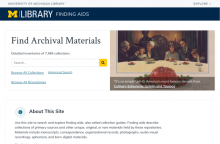
U-M Library is launching a new version of our Finding Aids site in early 2023, replacing a homegrown system that’s been in use for over 20 years with ArcLight, an open-source system widely used by academic libraries and archives. The site is currently available as a public beta for preview and will be available at the same URL going forward.
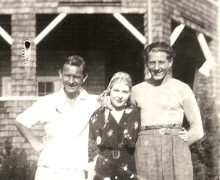
If you’re interested in the history of vaudeville, burlesque, or other 20th century stage performance, these papers might just give you some insight into “what’s happened to the the’tre”…
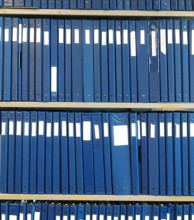
Many finding aids for our archives and manuscript materials are online, but some are not (yet). When a Special Collections catalog record says “Unpublished finding aid available in repository,” these are what we’re talking about.
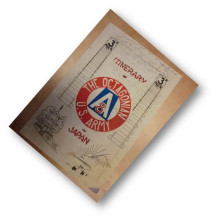
The Alfred Rodman Hussey Papers have arrived at Special Collections! Alfred Rodman Hussey played a very important role in drafting the new Japanese constitution and restructuring the Japanese government during the Allied occupation of Japan post-WWII. This blog post discusses the processing of these papers that has led to the increased discoverability and improved storage of the materials, added experience for the student University Library Associate, and a finding aid and catalog record.